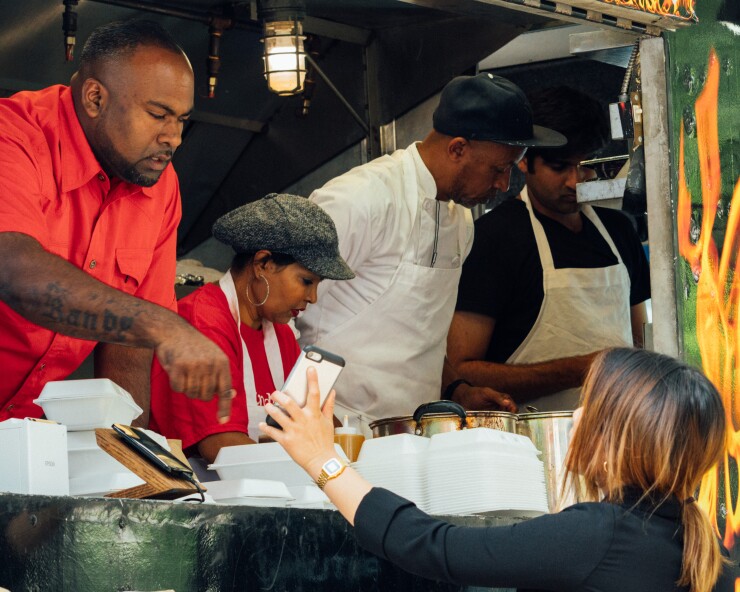Chicago Trading Company, Spotify and Verizon Media are among a number of employers offering a new meal service benefit to their workers.
Ritual, an order-ahead food app, released a new benefit to employers that allows them to allocate money to pay for employee meals. The offering, called Ritual for Business, gives employees the ability to use money allotted from their employer to purchase food from local restaurants.
“We’re connecting people with restaurants in a digital way,” says Ritual CEO Ray Reddy. “Ritual for Business is an easy way for companies to provide a lunch program with control over their budget.”
The benefit just became available in the U.S. in December, and Ritual says they currently have “thousands” of employers utilizing the service globally. The program is free for employers and employees to use. Ritual makes money by taking a commission from incremental sales it drives to restaurants, Reddy says.

The app works by allowing employers to set a budget and parameters for meals. For example, companies may decide they want to provide $10 for dinner to any employee that works past a certain time in the evening. Typically, Ritual recommends employers provide $10-15 per meal, depending on the plan they purchase. If an order goes over the limit, employees pay the extra amount using their credit card.
Employers also can decide to only fund employees’ lunches if they are purchasing healthy food. Ritual works with registered dietitians to identify healthy meals and indicates nutritious options on the app using a wellness tag, Reddy says.
“Helping people to make good eating decisions is something that is important to a lot of people,” he adds.
Offering free or discounted food and drinks to workers is becoming a more popular employee benefit. The trend started with big Silicon Valley tech companies like Google, and Facebook, and has since spread to employers of all sizes. According to research from the Society for Human Resource Management, 32% of employers offer company-paid snacks and beverages to employees, up significantly from last year, when 22% offered it.
See also:
But providing meals often requires a large time commitment from a staff member who have to coordinate orders and delivery, Reddy says. Some larger employers offer in- house cafes, but that’s often expensive and inaccessible for small companies.
By providing employees with a set amount of money and allowing them to order and pick up food themselves, Ritual hopes to take some of the burden off office coordinators and give smaller companies more control over their budget for meal benefits, Reddy says.
While providing food may be becoming a mainstream benefit, a recent report from recruiting and staffing firm The Execu Search Group, says that while it is a nice perk, snacks are not a retaining factor for workers. Free food is a bonus, but it only makes a difference if a company offers other substantive benefits.
Reddy, though, says if a company already has a good culture, free food can enhance the office experience.
“No one is going to stay in the wrong job because they provide you with free lunch,” he says. “It’s one of those things if you have a good corporate culture and team, it enhances it.”





